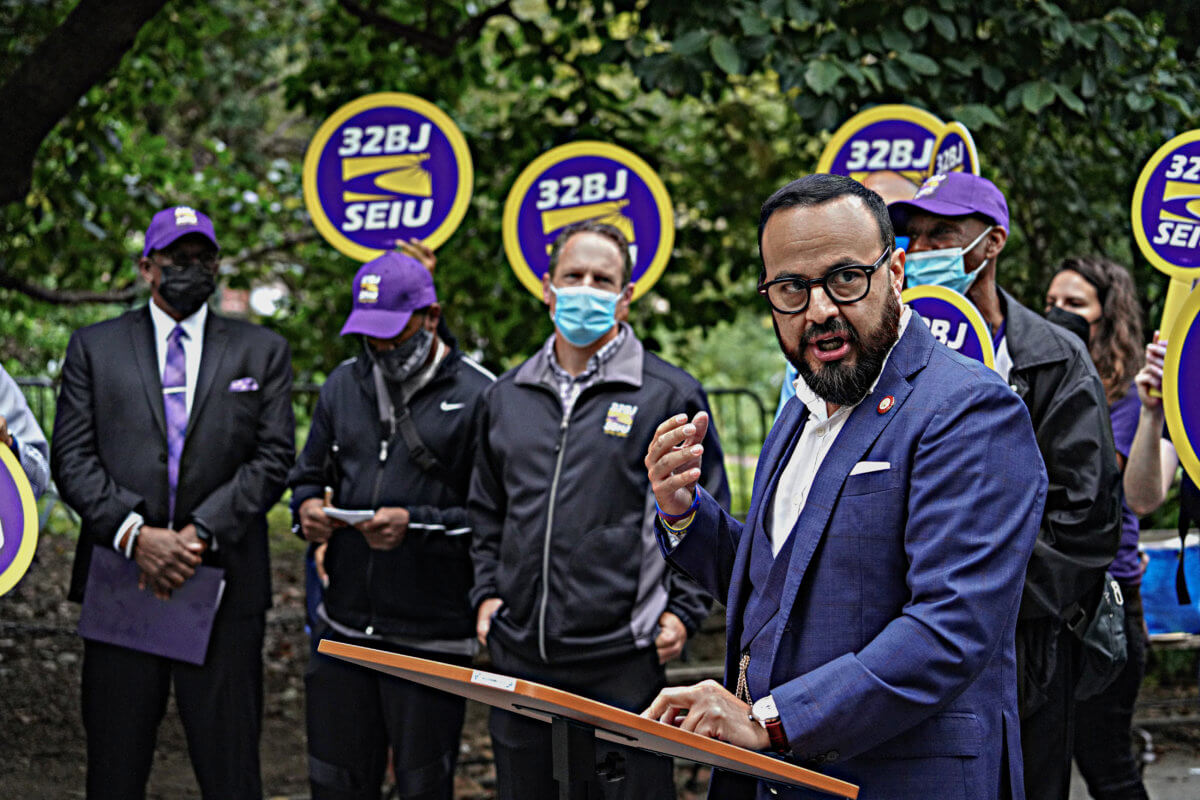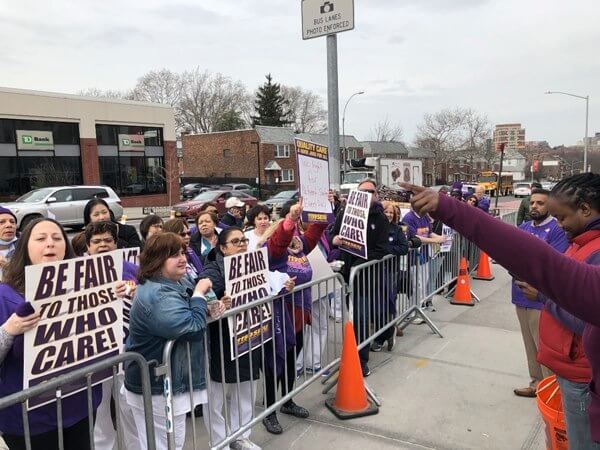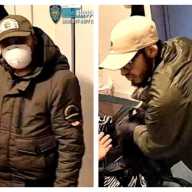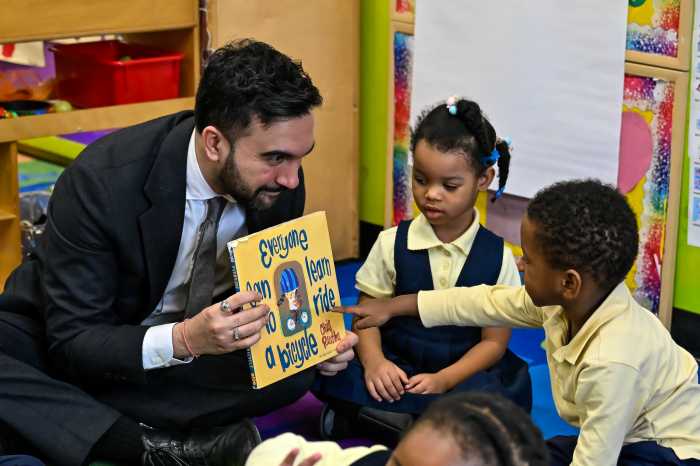As he eyes a run for City Council speaker, Queens Councilman Francisco Moya scored points with key labor unions with the passage of a key piece of legislation just days after another of his bills was signed into law by Mayor Bill de Blasio.
On Oct. 7, the City Council approved Moya’s bill, Intro. 2006, establishing prevailing wage requirements for guards at city-contracted shelters. The measure requires all shelter operators that contract with the Department of Homeless Services to ensure all security and fire guards are paid no less than the prevailing wage and would empower the comptroller to monitor contracted shelter operators’ compliance and investigate violations and complaints.
“New York City cannot be the capital of the world if our own don’t have economic capital and are struggling to make ends meet,” Moya said. “Prevailing wages for shelter security and fire guards is one way we move forward towards creating an equitable standard of life that everyone deserves and should have, no matter where you come from, where you live or where you work.”
During a City Hall Park rally before the bill was passed, Moya rallied with members of 32BJ SEIU, which claims many of its 4,000+ shelter security workers suffer homelessness themselves at a rate four times higher than the New York City average while also working uninsured.
“Over 90% of the workforce is made up of people of color, and they struggled to bring food to the table, pay their rent and access lifesaving medical debt,” 32BJ President Kyle Bragg said. “No one who is working full time — no one should be worried about keeping a roof over their heads. You get up every day, you go to work in service of the public, and you should not worry about how you put food on your table.”
On Tuesday, Oct. 5, Moya stood alongside the mayor as he signed Intro. 2397-A into law requiring severance pay for hotel service employees if a hotel with more than 100 rooms that laid off over 75% of its employees or closed during the COVID-19 pandemic fails to reopen by Nov. 1. If a hotel does not reopen by Nov. 1, the legislation requires the hotel to pay a weekly benefit of $500 per employee for a period of up to 30 weeks.
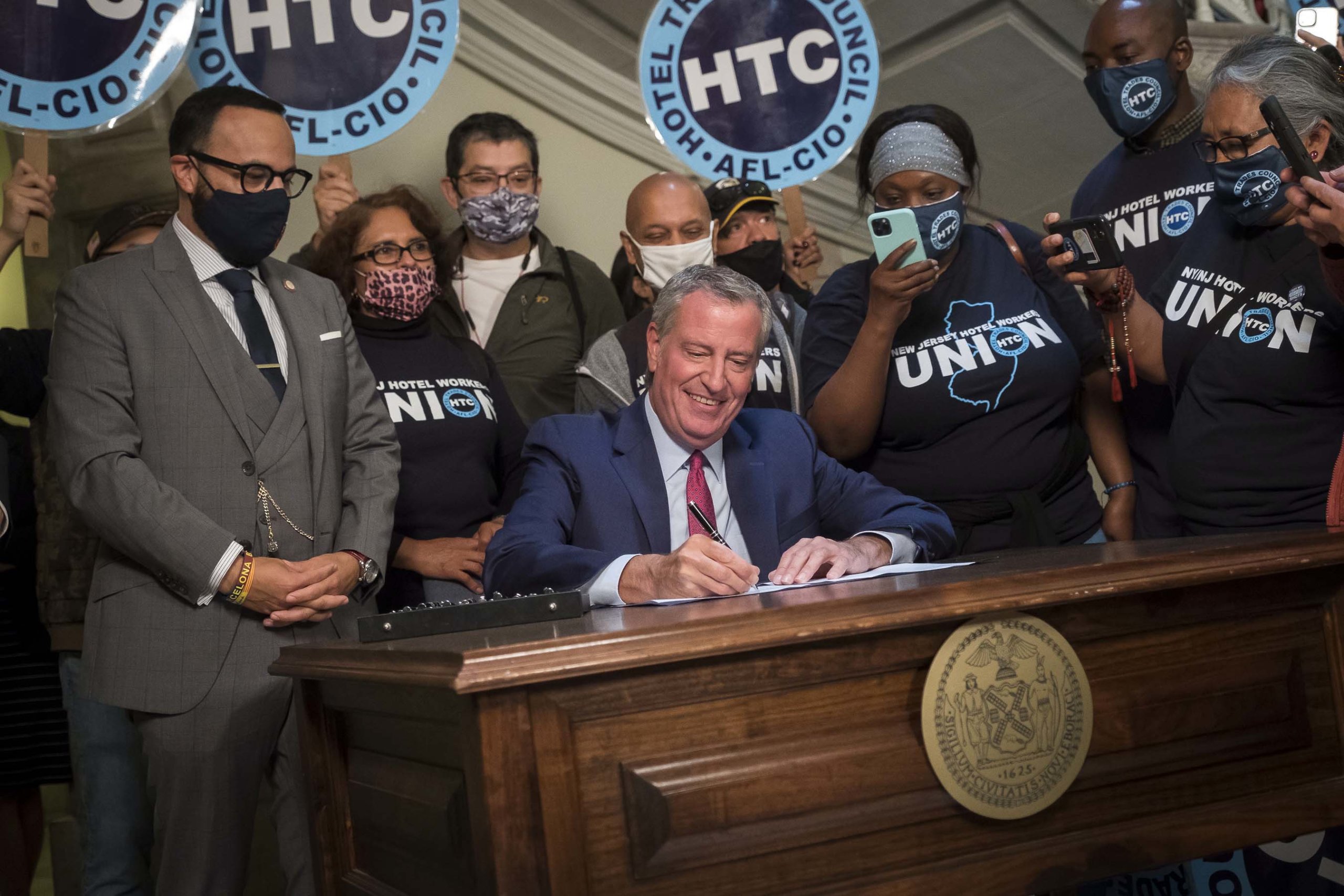
“The signing of this bill is another step forward towards a fair economic recovery from COVID, a pandemic that has hit hard the very communities that hotel workers represent,” Moya said. “This legislation is not only providing our city’s greatest ambassadors with a much-needed economic lifeline, we are also protecting the livelihoods of families and revitalizing New York City’s hotel industry. We are already seeing the impact of this legislation with two major NYC hotels announcing [that] they’re reopening, representing 1,000 jobs and counting. I look forward to seeing more hotels reopening, more people getting back to work, more tourism, and a better and stronger NYC.”
The mayor explained that just a few years ago more than 67 million tourists visited New York City each year and he guaranteed that they are coming back. For that sector to make a recovery, the hotels have to come back at full strength.
“It’s not often you see legislation have such a clear and immediate positive impact, but today is one of those days. By encouraging hotels to reopen and recall their workers, this bill will give thousands of New Yorkers the hope and financial security they so desperately need,” NY Hotel Trades Council President Rich Maroko said. “Major hotels have already announced their reopening and are calling workers back to their jobs thanks to this legislation. We thank Mayor de Blasio for signing it into law and Council member Moya for leading the charge.”

